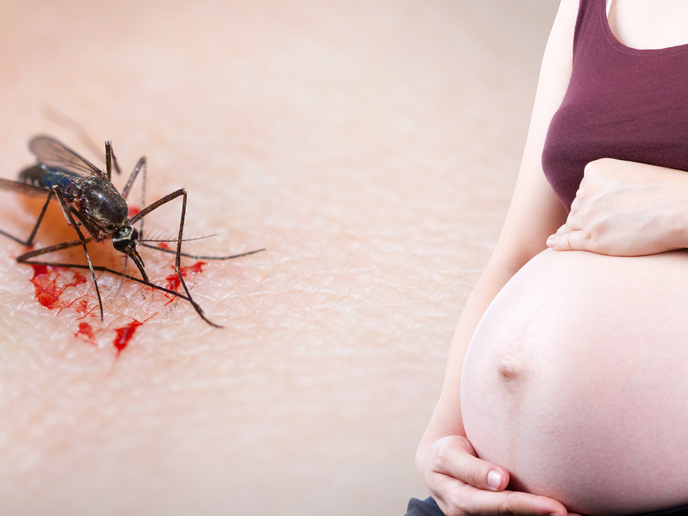A placental malaria vaccine
Malaria, caused by the parasite Plasmodium falciparum, is transmitted to humans by infected female mosquitoes. Infected erythrocytes in pregnant women can bind to the placenta and cause placental malaria in high-rate transmission countries with an incidence of one out of four pregnant women. Recent evidence has identified a specific P. falciparum erythrocyte membrane protein 1 (PfEMP1), VAR2CSA, as the protein responsible for the binding of infected erythrocytes to the placenta. Naturally acquired protective antibodies block the binding between infected red blood cells and receptors on the vascular endothelium. This clearly indicates that a vaccine could help prevent transmission and act protectively by raising inhibitory immunoglobulins. Scientists of the EU-funded PLACMALVAC project proposed to develop a VAR2CSA-based vaccine against placental malaria from production stage all the way to clinical testing. Their strategy was based on the binding of VAR2CSA to chondroitin sulphate A (CSA) in the human placenta. A small subunit of the VAR2CSA antigen was found to bind specifically to CSA and induce antibodies that block interaction with placental tissue. Results from the Phase I trial demonstrated that the vaccine was safe and well-tolerated in healthy volunteers that had been exposed to malaria. Importantly, the antibodies induced against this antigen interfered with the adherence of P. falciparum infected erythrocytes to CSA. To overcome low immunogenicity issues associated with adjuvant vaccines, the consortium also developed a proprietary virus-like particle (VLP) platform for display of antigens. This approach enhances both the primary antibody responses as well as the memory immune responses. This VLP technology also reduces the vaccine dose and number of immunisations while it may be useful to combat other non-infectious diseases such as cancer. Overall, the PLACMALVAC project addressed an urgent global health challenge, which is currently treated through the use of anti-malarial drugs. The VAR2CSA vaccine is the first vaccine targeting the pathogenic cyto-adhesion of the parasite and is envisioned to be used alongside childhood vaccination to provide complete protection against malaria.







